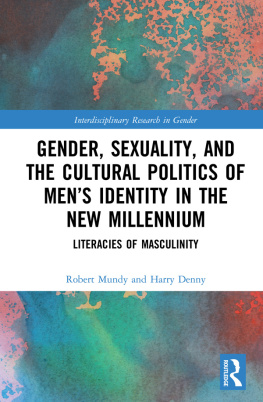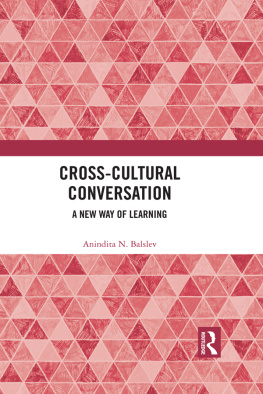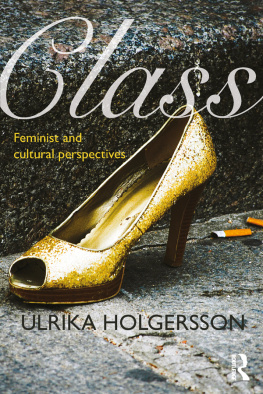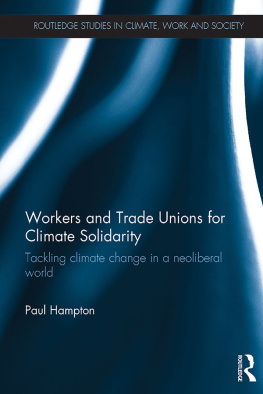CULTURAL DIVERSITY IN TRADE UNIONS
Cultural Diversity in Trade Unions
A challenge to class identity?
Edited by
JOHAN WETS
First published 2000 by Ashgate Publishing
Reissued 2018 by Routledge
2 Park Square, Milton Park, Abingdon, Oxon OX14 4RN
711 Third Avenue, New York, NY 10017, USA
Routledge is an imprint of the Taylor & Francis Group, an informa business
Copyright Johan Wets 2000
All rights reserved. No part of this book may be reprinted or reproduced or utilised in any form or by any electronic, mechanical, or other means, now known or hereafter invented, including photocopying and recording, or in any information storage or retrieval system, without permission in writing from the publishers.
Notice:
Product or corporate names may be trademarks or registered trademarks, and are used only for identification and explanation without intent to infringe.
Publishers Note
The publisher has gone to great lengths to ensure the quality of this reprint but points out that some imperfections in the original copies may be apparent.
Disclaimer
The publisher has made every effort to trace copyright holders and welcomes correspondence from those they have been unable to contact.
Typeset by
Sandra Volders
Hoger Instituut voor de Arbeid
E. Van Evenstraat 2e
B-3000 Leuven
A Library of Congress record exists under LC control number: 00131671
ISBN 13: 978-1-138-71567-7 (hbk)
ISBN 13: 978-1-315-19742-5 (ebk)
Contents
Patrick Pasture
Staffan Zetterholm
Patrick Pasture
Giampiero Bianchi
Jacint Jordana
Volkmar Kreiig
Albert Martens
Judith Roosblad
Maurizio Ambrosini
Satnam Virdee
Philippe Bataille
Maurizio Ambrosini is Professor of Sociology of Organisation at the Universit Cattolica del Sacro Cuore, Mayland
Philippe Bataille is Maxtre de confrences at the University of Lille III and member of the Centre dAnalyse et dIntervention Sociologiques (CADIS, EHESS/CNRS) in Paris
Giampiero Bianchi is historian, Head of the Study and Formation Department of the FISBA (CISL)
Jacint Jordana is Associate Professor at the Department of Political and Social Sciences of the Universitat Pompeu Fabra in Barcelona
Volkmar Kreiig is affiliated to WIESO-Europa in Chemnitz and currently Visiting Professor of Industrial Relations at the State University of St. Petersburg
Albert Martens is Professor of Urban Sociology and Sociology of Industrial Relations at the University of Leuven
Patrick Pasture, Ph D in History, is Research Associate of the Fund for Scientific Research - Flanders (Belgium), affiliated to the Faculty of Arts, and Project Manager at HIV A, University of Leuven
Judith Roosblad is researcher/Ph D student at the Institute for Migration and Ethnic Studies (IMES) at the University of Amsterdam
Satnam Virdee is Lecturer at the Sociology division of the Department of Government, University of Strathclyde, Glasgow
Johan Wets, Ph D in Political Science (1999), is Scientific Collaborator of HIVA, University of Leuven
Staffan Zetterholm is Associate Professor in European Studies, Department of Development and Planning, Aalborg University (Denmark)
This publication is based upon a seminar held in Leuven (Belgium) in February 1997, organised by the Higher Institute of Labour Studies (HIVA) of the University of Leuven in collaboration with the European Centre for Workers Questions (EZA, Europisches Zentrum fr Arbeitnehmerfragen) and with the financial support of the European Community.
Johan Wets was responsible for the practical organisation of the seminar and the editing of the texts.1 The administrative assistants of the HIV A, especially Evy Van Daei, Hilde Van Wijck, Liesbeth Villa, and Sandra Volders gave practical support at various times.
I would like to offer my sincere thanks to all those who made the seminar and this publication possible.
Patrick Pasture
Project Co-ordinator
Unfortunately, my colleague Wets was unavailable for the introduction.
PATRICK PASTURE
This book is the second publication of the international research program The Culture Shock. Labour and the Integration of Europe, investigating how trade unions in Europe respond to challenges relating to the European integration. For once, the focus is not on economic and political problems arising from European integration. In this research program, the spotlight is directed towards cultural aspects of the action and organisation of trade unions. Our starting point is that trade unions are not only socio-economic and - not least - political pressure groups, but also communities with a collective identity, with distinctive shared values and patterns of behaviour; in the broad definition of culture also used by Staffan Zetterholm (). Our underlying assumption is that, only partially as a result of European integration, the unity of this collective identity has come under pressure towards the end of the twentieth century. The concept of Europe as used in this publication only serves to mark out the geographical area, and as a synonym for Western Europe. In this sense, the institutional infrastructure of the European community is not relevant, and does not actually feature at all in this publication.
Traditionally, the collective identity of the labour movement is, in the first place, shaped by class - a loaded concept, undoubtedly to some extent a product of its time, as it is defined or imagined by the labour movement itself. The concept of class nevertheless remains relevant, even if only because the trade union movement somehow remains an important factor in European society, and because it continues to define itself as working class, despite studies carried out by some social scientists into the disappearance or disintegration of the working class (e.g. Paluski and Waters, 1996). An in-depth analysis of this aspect is scheduled for a future edition in the present series (Van Gyes et al, 2000).
The identity of the labour movement is also defined by other factors, such as their political and ideological alignment. On the continent, the trade union movement has always contained different political and ideological tendencies, despite the never realised propensity towards unity (see Pasture et al, 1996; Ebbinghaus, 1993). Historic research has clearly demonstrated that the trade union movement adopted a national identity, even before World War I. The latter is naturally most significant in the context of the present research program: it can be safely assumed that a strong national identity constitutes a sizeable obstacle to international cooperation. The movements national identity was not so much abstract as a very practical involvement in the setting-up of the national welfare state, and in the twentieth century the labour and trade union movement became an integral part of the fabric of the nation state (Van der Linden, 1988; Berger, 1995; Katznelson, 1986). Furthermore, the significance of national identity is particularly obvious in the context of immigration. If a conclusion can be drawn from the comparative study by Rinus Penninx and Judith Roosblad concerning the attitudes and actions of the trade unions towards immigrants and immigration in Europe between 1960 and 1993, it is that although the unions may commit themselves verbally in varying degrees to internationalist solidarity of all workers, the dominant frame of reference is that of the national state and the national arena (Penninx and Roosblad, forthcoming).1 Some labour and trade union movements have even linked up with nationalist and regionalist movements - the distinction between both is not always equally relevant: this issue was investigated in 1995 in the first seminar (Pasture and Verberckmoes, 1998).








